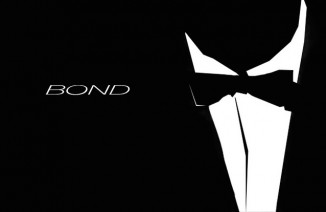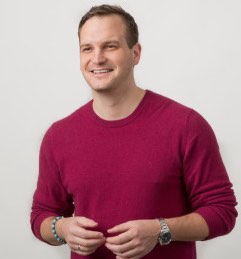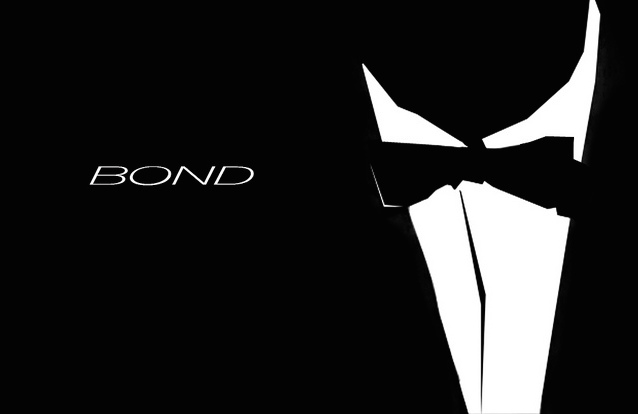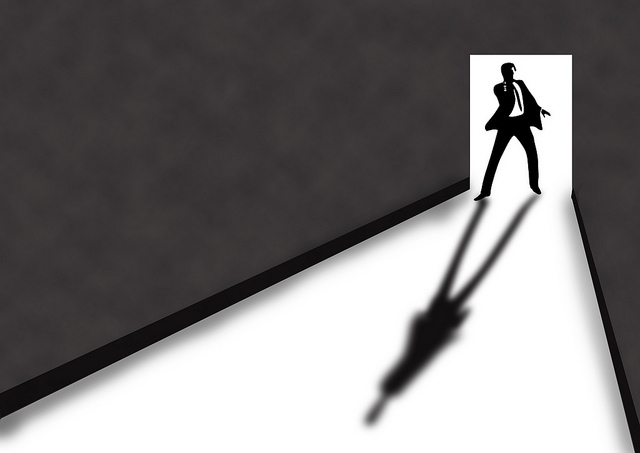62 years ago today, the first James Bond novel, Casino Royale, was published on April 13, 1953. The English author, Ian Fleming, was a journalist and naval intelligence officer, who started writing the book at his Goldeneye home in Jamaica. “I wanted Bond to be an extremely dull, uninteresting man to whom things happened,” he told the New Yorker. But his 12 Bond novels and two short-story collections are anything but dull.
James Bond films are boisterous, testosterone-laden fantasies, but the most famous of secret agents can teach us a lot about a live well-lived. And I am not (necessarily) talking about the best way to serve a Martini. Here are 007 pieces of wisdom that can be distilled from 62 years of suave and savvy Bond culture:
1. Don’t get irritated
James Bond is always “cool” – at least, that’s the impression he makes on others. He focuses on the situation at hand and the overarching goal of his mission and never gets sidetracked, except for the occasional tête-à-tête – but even those often serve a purpose, e.g., annoying one of the evil dudes. At the end of the day, this is a lesson about mindfulness – which has shown to be associated with positive outcomes in several important life domains, including mental health, physical health, behavioral regulation, and interpersonal relationships.
2. Take immediate Action
007 is not much of a planner. He makes up his mind and improvises a lot of his moves on the spot, relying on his wits and physical abilities. He knows that the life as a super-agent is full of surprises and events that one cannot really prepare for. Therefore, he sticks to a few big goals and decides on the next-best move “then and there.” The ability to cope with uncertainty and unforeseen events is a critical element of resilience.
3. Show Self Respect
James Bond never questions his abilities, he never falters or hesitates. While a real-life person cannot (and maybe shouldn’t) be equipped with an equally high level of self-confidence, this is probably a lesson about self-efficacy, the “power of believing you can.” Self-efficacy is the scientific version of Henry Ford’s aphorism: “Whether you think that you can, or that you can’t, you are usually right.” By believing that we can reach a certain goal, we are increasing the likelihood of actually getting there. This has been extensively demonstrated in the area of work, education, and sports.
4. Always Carry a Secret Weapon
When in desperate straits, 007 always has one more trick up his sleeve, usually a tiny gadget given to him by the armorer “Q”. Seen through the lens of Positive Psychology, this part refers to the very unique set of signature strengths that we all possess – and that we should rely on when to going gets tough, since using our personal strengths is associated with a higher likelihood of reaching our goals. Additionally, this point shows that other people matter. Even a lone wolf like Bond needs other people’s support at times.
 5. Act with Style – And Simplicity
5. Act with Style – And Simplicity
James Bond portrays a unique style, and understands that style is mostly about simplicity. He’s always dressed and groomed extremely well – which means he sticks to time-tested essentials. The suits, the hairdo, the watches all seem to say “Don’t get carried away by fashion, or unnecessary details. No frills.” This is also a lesson on efficiency. Barry Schwartz calls it the Tyranny of Choice. Bond knows that sticking to certain defaults is one of the most intelligent ways to avoid unnecessary decision-making – thereby saving up mental capacity for more precarious moments in life than choosing what to wear for dinner.
6. The true significance of your current Mission will become clear later, in the Bahamas
This point has a lot to do with the “connecting the dots,” which was part of Steve Jobs’ Stanford Commencement speech. Life can only be lived “forward,” but the sense-making happens when looking backward. Hence, we have to embark on the journey without necessarily knowing where it will end –or what it all means. We have to get moving, anyway. Otherwise, we won’t even make it to the Bahamas. This resembles the process of how entrepreneurs are finding ideas for their next start-up: they acquire knowledge in different areas of life and only later on start to recognize relationships or patterns in those seemingly unrelated events or trends in the external world.
7. You are in Her Majesty’s Secret Service
This is the most important principle, though it may not seem straightforward. Even though James Bond seems like a cynical, ruthless, and at times even nihilistic person, he’s definitely not. He is an agent in Her Majesty’s Secret Service, fighting for the safety of his country and “the free world” in general. He is not in it for himself. James Bond clearly has a higher purpose and acts according to certain unshakable values. Research has shown that people who perceive their life as having a strong purpose are more focused, resilient, and inventive in pursuing their goals. As such, having a strong purpose is the foundation for all the above-mentioned principles.
(SHARE this Bond Wisdom with your friends below)
___________________________
Although I wish I would have done so, I didn’t come up with this stuff myself. I first heard about the “James Bond Philosophy of Life” at the University of Pennsylvania shortly before Christmas 2013 from the magnificent Esa Saarinen, a “star” philosopher from Finland.
 Nico Rose is a psychologist with a doctoral degree in business administration. He’s Head of Employer Branding at Bertelsmann. Since 2008 he has been a management coach at Excellis and in 2010, was awarded with the German “Coaching Award”. Nico has authored articles, appeared in German newspapers and magazines, and is a regular keynote speaker at human resource conferences. In 2012, his latest book “Lizenz zur Zufriedenheit – Positive Psychologie in der Praxis” (License for Satisfaction: Positive Psychology in Practice) was published. He lives in Hamm, Germany with his wife and a son and blogs about Positive Psychology at www.mappalicious.com.
Nico Rose is a psychologist with a doctoral degree in business administration. He’s Head of Employer Branding at Bertelsmann. Since 2008 he has been a management coach at Excellis and in 2010, was awarded with the German “Coaching Award”. Nico has authored articles, appeared in German newspapers and magazines, and is a regular keynote speaker at human resource conferences. In 2012, his latest book “Lizenz zur Zufriedenheit – Positive Psychologie in der Praxis” (License for Satisfaction: Positive Psychology in Practice) was published. He lives in Hamm, Germany with his wife and a son and blogs about Positive Psychology at www.mappalicious.com.
Photo credits: (top) ClaraDon (middle) bionicteaching





















